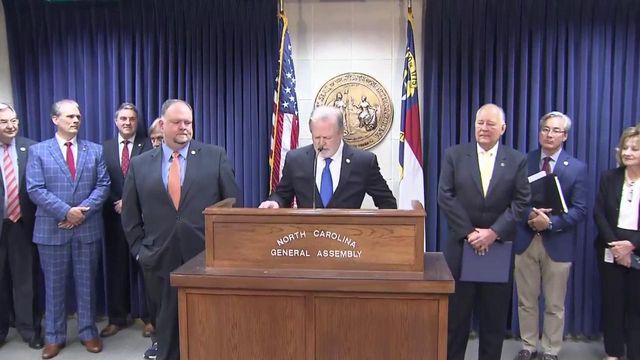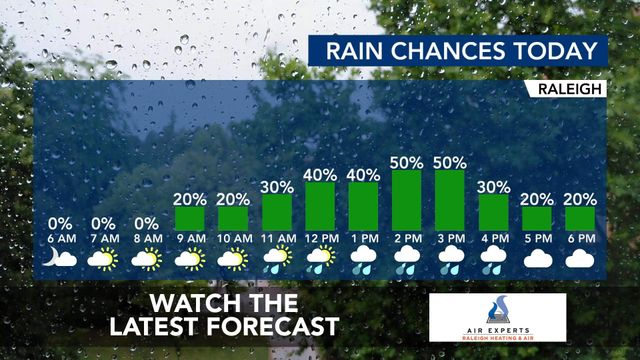What's in the NC Senate's proposed budget for K-12 education?
The North Carolina Senate’s proposed budget takes a more conservative approach to education funding than the proposals put forth by the state House of Representatives and Gov. Roy Cooper.
Senate President Pro Tempore Phil Berger, R-Rockingham, and Sen. Michael Lee, R-New Hanover, on Monday highlighted a few education items detailed in the expansive document.
While the Senate proposal on teacher pay is lower than proposals from the state House of Representatives and Gov. Roy Cooper, Berger said he thinks it’s enough to boost the state’s teacher rolls.
“Along with UNC System keeping tuition flat, it should help encourage more adults to pursue teaching as a profession,” Berger said while presenting the budget Monday.
North Carolina Association of Educators President Tamika Walker said in a statement that the proposed raises won't make up for cost of living increases. She called the Senate proposal "a step backward" from the House proposal, which included higher raises and other items that the NCAE supported.
The Senate proposed several changes and new items related to school services, teacher compensation and instruction in schools, including a prohibition against teaching a once-popular method for reading instruction.
Among the K-12 education items related to school services:
- $35 million each year in school safety grants, similar to what was provided last year. It could be used for law enforcement, as well as for students in crisis. They would be non-recurring funds.
- $10 million for 120 more school nurses, counselors and social workers. North Carolina is short hundreds more nurses, counselors and social workers, based on national recommendations.
- Major increases in private school voucher funding and eligibility that have already passed through separate committee in bills in the state House and state Senate
- Covering the cost of reduced-price school meals for families who qualify — a continuation of a practice this year. It would also prohibit schools from issuing “administrative penalties” against students for having a debt to the school nutrition department. That would prohibit withholding transcripts or diplomas and a handful of other actions.
- Changing how school bus funding is distributed, potentially punishing schools with inefficient bus routes. It’s unclear how the change would affect magnet schools or busing from overcrowded schools. The Wake County school board has focused more on neighborhood schools in recent years but has assigned tracts based on socioeconomic status, rather than proximity, to a particular school for years. The budget would also create a special transportation fund for students with “extraordinary needs” and homeless or foster children.
The budget would make a few changes regarding teaching roles and employee compensation:
- An average raise of 4.5% over the next two years for teachers, with the biggest increases for the earliest-career teachers. Starting teacher pay would rise from $37,000 to $41,000 by the 2024-25 school year, a 10.8% increase. For teachers with 15 or more years of experience, the annual raise would be $200 next year and $50 the year after that. The North Caroline House of Representatives and Gov. Roy Cooper have also pitched raises for teachers of higher amounts.
- Non-certified school employees, such as bus drivers or teaching assistants, would receive 5% raises over the two years of the budget.
- $10.9 million for salary supplements of $10,000 for “leadership teachers” and $3,000 for “classroom excellence” teachers. A leadership teacher would work in a classroom at least 30% of the time and leads their teacher team. A classroom excellence teacher would agree to take on more students. Currently, the program operates as a state pilot program in which many schools must fund the leadership positions themselves. According to the budget, more than 4,000 teachers could be leadership teachers, and about 14,000 teachers could be classroom excellence teachers. However, the recurring funds would be enough to cover 1,090 leadership teachers or 3,633 classroom excellence teachers.
The budget proposed a few instructional changes, including an experimental one to speed up the first semester of high school:
- Rather than providing calendar flexibility to schools, which Berger opposes, the bill would have 10 high schools participate in a remote learning pilot program that would allow students to take first semester exams before Dec. 31. One of the sticking points for schools pushing for calendar flexibility is that the current law forces students to take first semester exams in January, after a nearly two-week winter break. The pilot would allow the schools to use up to 30 hours of remote instruction to ensure the exams can be taken then. It’s unclear when schools would use the remote learning, if they would take place during existing break periods.
- It would ban teacher from using the “three-cueing” method of teaching reading, which is the practice of teaching students to guess what a word is when they don’t recognize it, based on context clues.
WRAL State Government Reporter Travis Fain contributed to this report.











